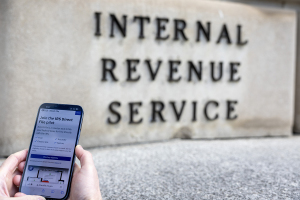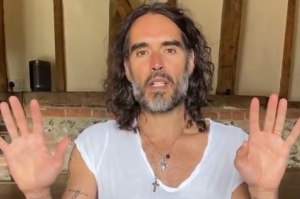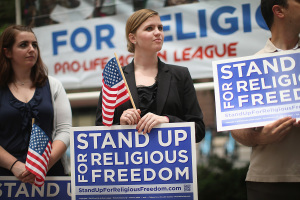Court: Prop. 8 Supporters Have Legal Right to Defend Marriage Amendment
The California Supreme Court ruled Thursday that proponents of Proposition 8 – the 2008 voter-approved ballot initiative that defined marriage as between a man and a woman – have legal standing to defend the amendment in federal court.
The appeals case by Prop. 8 supporters was in danger of being derailed when a district court in August 2010 struck down Prop. 8 and named defendants – then Gov. Arnold Schwarzenegger and then Attorney General Jerry Brown – refused to appeal the ruling.
But the California Supreme Court unanimously ruled Thursday that the ProtectMarriage.com legal team, including Alliance Defense Fund attorneys, have the right under state law to defend the amendment.
The high court was asked by the 9th U.S. Circuit Court of Appeals to decide on the legal standing of ProtectMarriage.com – the official proponents of the state amendment – since the state declined to defend its own Constitution, noted ADF.
“The court was clearly right to conclude that the California marriage amendment should not go undefended just because state officials have refused to defend it,” said ADF Senior Counsel Brian Raum in a statement. “Because the people of California have a right to be defended, Proposition 8’s official proponents will be allowed to continue defending the marriage amendment. Otherwise, state officials would have succeeded in indirectly invalidating a measure that they had no power to strike down directly.”
The high court’s ruling means that the appeals court panel must decide how to apply the decision to the ongoing legal battle over Prop. 8.
The California Supreme Court had actually legalized same-sex marriage in May 2008, but it came to a halt a few months later with the approval of Prop. 8. The high court upheld the amendment but did not void same-sex marriages that occurred between its 2008 ruling and the passage of Prop. 8.
In the 2008 election, a majority of California voters supported Prop. 8, leading to an amendment to the state’s Constitution that essentially banned gay marriage. However last August, then Chief U.S. District Judge Vaughn Walker, who was later found to be in a long-term same-sex relationship, struck down the measure as unconstitutional. He concluded that moral disapproval alone is an improper basis on which to deny legal marriage to gay men and women.
Since the California governor and attorney general refused to appeal Walker’s ruling, ProtectMarriage.com started the appeal process and the 9th Circuit Court began hearing arguments in December 2010.
California Supreme Court’s opinion:
“In a post election challenge to a voter-approved initiative measure, the official proponents of the initiative are authorized under California law to appear and assert the state‘s interest in the initiative‘s validity and to appeal a judgment invalidating the measure when the public officials who ordinarily defend the measure or appeal such a judgment decline to do so.
“Neither the Governor, the Attorney General, nor any other executive or legislative official has the authority to veto or invalidate an initiative measure that has been approved by the voters,” the court concluded. “It would exalt form over substance to interpret California law in a manner that would permit these public officials to indirectly achieve such a result by denying the official initiative proponents the authority to step in to assert the state‘s interest….”





























